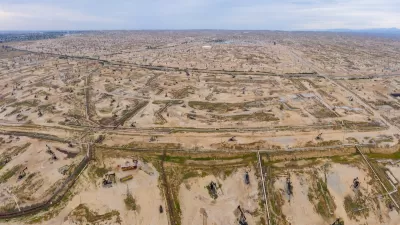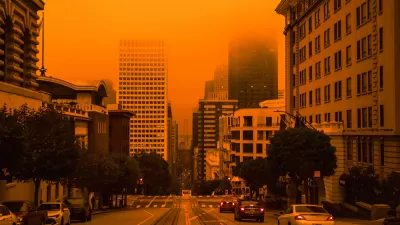Climate action plans cannot succeed without bona fide action on social equity and job creation, argues Murtaza Baxamusa who teaches planning at USC and develops affordable housing Murtaza Baxamusa.
While many of the climate action plans, now adopted in over 120 cities and counties, pay lip service to social and economic justice, too few contain concrete and specific actions at a level equal to the environmental standards of the documents, argues Murtaza Baxamusa, Ph.D., AICP, who develops affordable housing for the San Diego Building Trades Family Housing Corporation and teaches urban planning at the University of Southern California (USC).
"Sustainability is framed as a three-legged stool consisting of the three ‘E’s: environment, economy and equity. However, the third leg, social and economic equity, is often the weakest," says Baxamusa.
He goes on to note:
In an earlier article, I have argued that community empowerment is a necessary condition for sustainability. This is because empowerment balances out the forces that make our world unsustainable. I will further argue that sustainability itself can distribute justice, creating a benevolent reinforcing cycle between empowerment, engagement and equity. For example, sustainable modes of commuting like transit, walking and biking promote social movements through increased social interactions in the public domain. And consequently, these social movements both use and politically support these modes.
Baxamusa also proposes three strategies for "integrating equity within climate actions plans:"
- Establish enforceable thresholds for equity issues such as poverty/income, affordable housing, transportation/transit, and targeted socio-economic benefits.
- Integrate equity in the administration and implementation of all environmental plans, policies and regulations throughout city departments.
- Institutionalize diversity in terms of both leadership, as well as in outreach among stakeholders.
FULL STORY: Why climate change action cannot succeed without social equity

Maui's Vacation Rental Debate Turns Ugly
Verbal attacks, misinformation campaigns and fistfights plague a high-stakes debate to convert thousands of vacation rentals into long-term housing.

Planetizen Federal Action Tracker
A weekly monitor of how Trump’s orders and actions are impacting planners and planning in America.

In Urban Planning, AI Prompting Could be the New Design Thinking
Creativity has long been key to great urban design. What if we see AI as our new creative partner?

King County Supportive Housing Program Offers Hope for Unhoused Residents
The county is taking a ‘Housing First’ approach that prioritizes getting people into housing, then offering wraparound supportive services.

Researchers Use AI to Get Clearer Picture of US Housing
Analysts are using artificial intelligence to supercharge their research by allowing them to comb through data faster. Though these AI tools can be error prone, they save time and housing researchers are optimistic about the future.

Making Shared Micromobility More Inclusive
Cities and shared mobility system operators can do more to include people with disabilities in planning and operations, per a new report.
Urban Design for Planners 1: Software Tools
This six-course series explores essential urban design concepts using open source software and equips planners with the tools they need to participate fully in the urban design process.
Planning for Universal Design
Learn the tools for implementing Universal Design in planning regulations.
planning NEXT
Appalachian Highlands Housing Partners
Mpact (founded as Rail~Volution)
City of Camden Redevelopment Agency
City of Astoria
City of Portland
City of Laramie





























